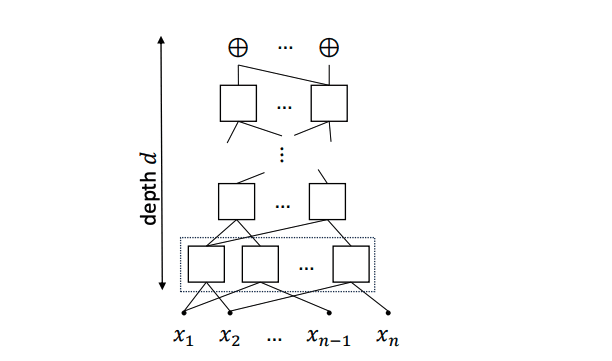Adaptive quantum computers represent a promising new direction in quantum information processing, and a recent study by Niels M. P. Neumann and colleagues formalises a model for understanding their capabilities. These computers, which interact with a standard quantum computer to perform specific tasks, offer potential advantages over traditional approaches, particularly when dealing with noisy or corrupted data. The research demonstrates that adaptive computers surpass standard quantum computers in retrieving information from such data within a limited number of computational steps, leveraging a technique that separates structured information from random noise. Furthermore, the team reveals that adaptive methods can also enhance the performance of standard algorithms, and they develop efficient routines for preparing key quantum states, including uniform superpositions, GHZ states, W-states, and Dicke states, which are fundamental building blocks for many other quantum algorithms.
The research investigates computational devices and the problems they address. It establishes a framework uniting two distinct computational problems into a single solution, exploring the underlying principles of quantum states and quantum gates. This work delves into quantum complexity theory, examining different computational paradigms and their potential for solving complex challenges, laying the groundwork for advancements in quantum computation.
Neural Networks Design Quantum Circuits Efficiently
Researchers have developed a novel method for designing quantum circuits using artificial neural networks. This approach allows for the creation of efficient quantum circuits, crucial for performing complex calculations on quantum computers. The team trained a neural network to generate quantum circuits that achieve specific computational tasks, demonstrating its ability to optimize circuit design automatically, promising to accelerate the development of quantum algorithms and improve the performance of quantum computations.
Adaptive Computation Beats Standard Quantum Limits
This work introduces a new model for quantum computation, termed adaptive quantum computers, which leverages interaction with standard computers to enhance performance. Researchers formalized this model, focusing on computations completed within a fixed number of steps to simplify practical implementation. The core finding demonstrates that adaptive quantum computers surpass the capabilities of standard quantum computers, particularly when retrieving information from corrupted digital data, a task where standard computers struggle within defined computational limits. The team employed a structure-versus-randomness approach, dissecting the data retrieval problem into structured and random components, and subsequently showcased adaptive computation’s potential.
Notably, adaptive quantum computers can even improve the efficiency of standard computations, and accelerate various quantum processes, improving the preparation of crucial quantum states. Efficient adaptive algorithms were developed to prepare the uniform superposition state, the GHZ state, the W-state, and the Dicke state, states frequently used as building blocks in more complex quantum algorithms. Theoretical analysis and implementation on quantum hardware confirmed the superior performance of these adaptive methods compared to their non-adaptive counterparts, paving the way for more efficient quantum computation.
Adaptive Algorithms Boost Data Recovery Performance
This work introduces and formalizes the concept of adaptive algorithms, which enhance the capabilities of standard algorithms by leveraging an external standard computer to offload certain computational tasks. The research demonstrates that these adaptive algorithms outperform standard algorithms in retrieving information from corrupted digital data, particularly when a fixed number of computational steps is required. This improvement stems from the ability of adaptive algorithms to effectively separate structured and random components within the data, a challenge for traditional methods. Furthermore, the study reveals that adaptive algorithms can also improve the efficiency of standard algorithms even when those algorithms are not limited by a fixed number of steps, and efficiently prepare specific quantum states, including uniform superposition, GHZ, W, and Dicke states, which are fundamental building blocks for more complex quantum computations. Through both theoretical analysis and hardware implementations, the researchers provide a comprehensive evaluation of their strengths.

